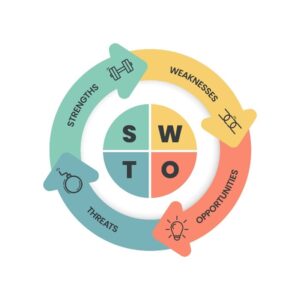Credit files are an important part of the financial landscape for Australian citizens.
A credit file is a record of an individual’s borrowing history, including any loans, credit cards, or other types of credit they have taken out in the past.
This information is used by lenders and other financial institutions to assess your creditworthiness.
Most lenders will review your credit report as part of their home loan approval process, they will do this to see what your past behaviour was when it comes to your ability to repay a loan.
In Australia, credit files are maintained by credit reporting bodies such as Equifax, Experian, and Illion, which compile information from various sources, such as banks, credit card companies, and utility providers.
Australian citizens have the right to access their credit file for free once a year and can dispute any errors or inaccuracies in their credit report. Maintaining a good credit file is important for obtaining loans and other forms of credit, as well as securing favourable interest rates and terms.
Introduction of Comprehensive Credit Reporting
Comprehensive Credit Reporting (CCR) became a mandated regulatory change that required Banks to provide a more holistic credit reporting.
It came into effect on 1 July 2018.
This means that your credit file will now include positive and negative activity.
What is Comprehensive Credit Reporting?
Comprehensive Credit Reporting (CCR) is a system used by credit reporting agencies in Australia to collect and report a broader range of credit information about an individual.
Under CCR, credit files may include additional information beyond the traditional negative data such as defaults, bankruptcies, and court judgments.
This can include positive data, such as on-time payments, credit limits, and repayment history.
In addition, credit files may also include information about an individual’s credit accounts, including the type of credit, the date it was opened, the credit limit, and the current balance.
Other information that may be included in a credit file can include personal information such as your first and last name, your date of birth, and address history, as well as employment history and public record information.
By providing a more complete picture of an individual’s credit behaviour, CCR aims to help lenders make more informed decisions about creditworthiness, which can result in better interest rates and terms for consumers who maintain excellent credit histories.
From this date onwards, comprehensive credit reporting aims to provide a more complete picture of your credit behaviour, which will enable lenders to better assess their risk and assist with more responsible lending and borrowing practices.
What are some of the changes?

Once the CCR was introduced , additional credit information history will be supplied to all three Credit Reporting Bodies, which are – Equifax, Experian, and illion.
The credit information includes dates when you opened any transaction or savings accounts, any credit limit, such as home loan amounts, personal loan amounts, credit cards, etc.
Your credit report will also include up to 24 months of your repayment history.
You can view more information regarding comprehensive credit reporting at the following web address creditsmart.org.au.
How Long Do Credit Enquiries Stay on Your Credit Report?

In Australia, credit enquiries refer to any request made by a lender or credit provider to access an individual’s credit file.
Credit enquiries can have an impact on an individual’s credit score, and as a result, many people are interested in knowing how long they will remain on their credit report.
Generally speaking, credit enquiries remain on a person’s credit file for five years from the date of the enquiry.
We must remember that not all enquiries are treated equally.
There Are Two Types of Credit Enquiries: Hard and Soft.

Hard enquiries, which are made when an individual applies for a credit card, loan, or other credit product, can have a negative impact on a person’s credit score and remain on their credit file for five years.
Soft enquiries, which occur when a lender or credit provider checks a person’s credit file for pre-approval purposes, do not affect a person’s credit score and only remain on their credit file for twelve months.
Who are The Three Main Credit Reporting Agencies in Australia?

The three main credit reporting agencies in Australia are Equifax, Experian, and Illion (formerly Dun & Bradstreet).
These agencies collect and maintain information about individuals’ credit histories, which is used by lenders and other financial institutions to assess creditworthiness and to help make lending decisions.
Each of these agencies has slightly different methods for collecting and reporting credit information, and we encourage individuals to check their credit reports from each agency to make sure that the information they hold is accurate and up-to-date.
Australian citizens have the right to access their credit reports for free once a year from each of the three credit reporting agencies.
What is a Good Credit Score?

In Australia, credit scores typically range from 0 to 1,200 or 0 to 1,000, depending on the credit reporting agency. A good credit score in Australia is generally considered as being around 700 or higher, although different lenders may have their own criteria for what they consider being a good credit score.
Having a good credit score can help individuals in getting loans and credit cards approved with favourable terms and often lower interest rates.
It is important to note that credit scores are not the only factor that lenders consider when making lending decisions, and other factors, such as income, employment history, and debt-to-income ratio, may also be taken into account.
As previously mentioned, individuals get a copy of their credit reports and credit score for free every 12 months, this can be done with each of the three credit reporting agencies in Australia to ensure that their credit information is accurate and up-to-date.
To Check Your Credit Score in Australia, You can Follow These Steps:

You can arrange to get a copy of your credit report from any of the three main credit reporting bodies in Australia which are Equifax, Illion and Experian.
You are entitled to one free credit report per year from each credit reporting body.
You will need to create an account with the credit reporting agency, you will need to provide them with the necessary personal information to verify your identity.
Once you verify your identity, you can access your credit report or credit score.
Review your credit report or credit score carefully to ensure that there are no errors or discrepancies.
It’s important to have a regular check of your credit score and report to ensure that there are no errors or fraudulent activity that may negatively affect your creditworthiness.
This can help you make better financial decisions and improve your credit score over time.
Is it Possible to Have Defaults Removed?

Yes, it is possible to have defaults removed in Australia, but it depends on the circumstances of the default.
A default is a negative record on your credit report that shows you have failed to repay a debt on time or not at all.
Defaults can stay on your credit report for up to five years, which can affect your ability to get approved for a home loan or other credit facilities in the future.
If you believe that a default has been recorded incorrectly or unfairly, you can request that it be removed from your credit report.
The process for removing a default involves contacting the credit reporting agency and providing evidence to support your claim.
You may also need to contact the lender or other credit provider who placed the default on your credit report to negotiate a resolution.
It is important to keep in mind that defaults cannot be removed simply because you don’t want them on your credit report.
They must have been recorded in error or unfairly, or there must be extenuating circumstances that led to the default.
If you are struggling with debt, it is important to seek help and advice from a financial counselor or advisor to find a solution that works for you.
In Summary
In summary, it is important that you understand and keep track of your credit file. A comprehensive credit report will provide you with invaluable insights into your financial history, allowing you to make smart decisions about financing options.
Remember to check your credit file from one of the three main credit reporting bodies in Australia – Equifax, Experian and Illion – and if possible, aim for a good credit score.
Unfortunately, there are currently no methods available to remove past defaults entirely.
However, understanding how you got there can help set you up for a much better financial future.
Ultimately, taking control of your finances can be a very rewarding process.
To get a free copy of your credit report, get in contact today and we can get this for you quickly and easily.




